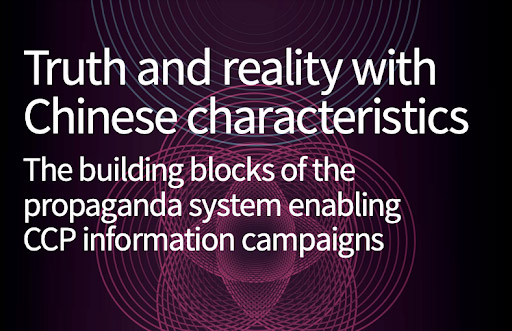A new report from the Australian Strategic Policy Institute (ASPI) provides information on an extensive “ecosystem of companies involved in areas like data exchange, media, gaming, artificial intelligence and immersive technology that are all being corralled into the CCP’s propaganda system.” The report, Truth and reality with Chinese characteristics: The building blocks of the propaganda system enabling CCP information campaigns, and its accompanying website, maps the CCP’s propaganda system, highlighting the linkages between the Central Propaganda Department, state-owned or controlled propaganda entities and data-collection activities, as well as technology investments in Chinese companies, many of which now operate globally. The CCP’s aim is to leverage various entities across media, gaming, AI and other emerging technologies to gain access to data that it deems strategically valuable for the propaganda system and its ongoing information campaigns.
Key findings include:
- The CCP sees emerging technology, such as e-commerce, virtual reality and gaming, as a means to promote a CCP-favored perspective on truth and reality that supports the official narrative that the CCP seeks to project (even if those technologies may also be potentially hazardous to the party’s interests). This is especially true in relation to the CCP’s ability to conduct information campaigns and shape global information standards and foundational technologies.
- In e-commerce, for example, companies such as Temu (which became the most-downloaded free iPhone app in the US in 2023 also collect large amounts of data that’s likely to be shared with the PRC’s propaganda system. In gaming, popular video games such as Genshin Impact, the developers of which receive Chinese state support linked to the propaganda system, create similar security risks due to the strategic value of the user data that they generate and collect.
Policy recommendations include:
- Governments should exert pressure on technology companies to conduct more thorough reviews of their digital supply chains to ensure that their Web 2.0 and future Web 3.0 foundations, and the companies and technologies that they rely on, are transparent and secure.
- Governments must exert significantly more policy attention to the regulation of technologies used for surveillance and related immersive technologies.
- Internationally, governments should work to standardize the ways in which data is shared, and proactively regulate how it can be produced and stored.
- Locally, governments and civil society should establish guardrails against the negative impacts of CCP efforts to shape the information environment, including through information campaigns such as media literacy and critical thinking campaigns targeting individuals and communities.
For More:
Download the Report


